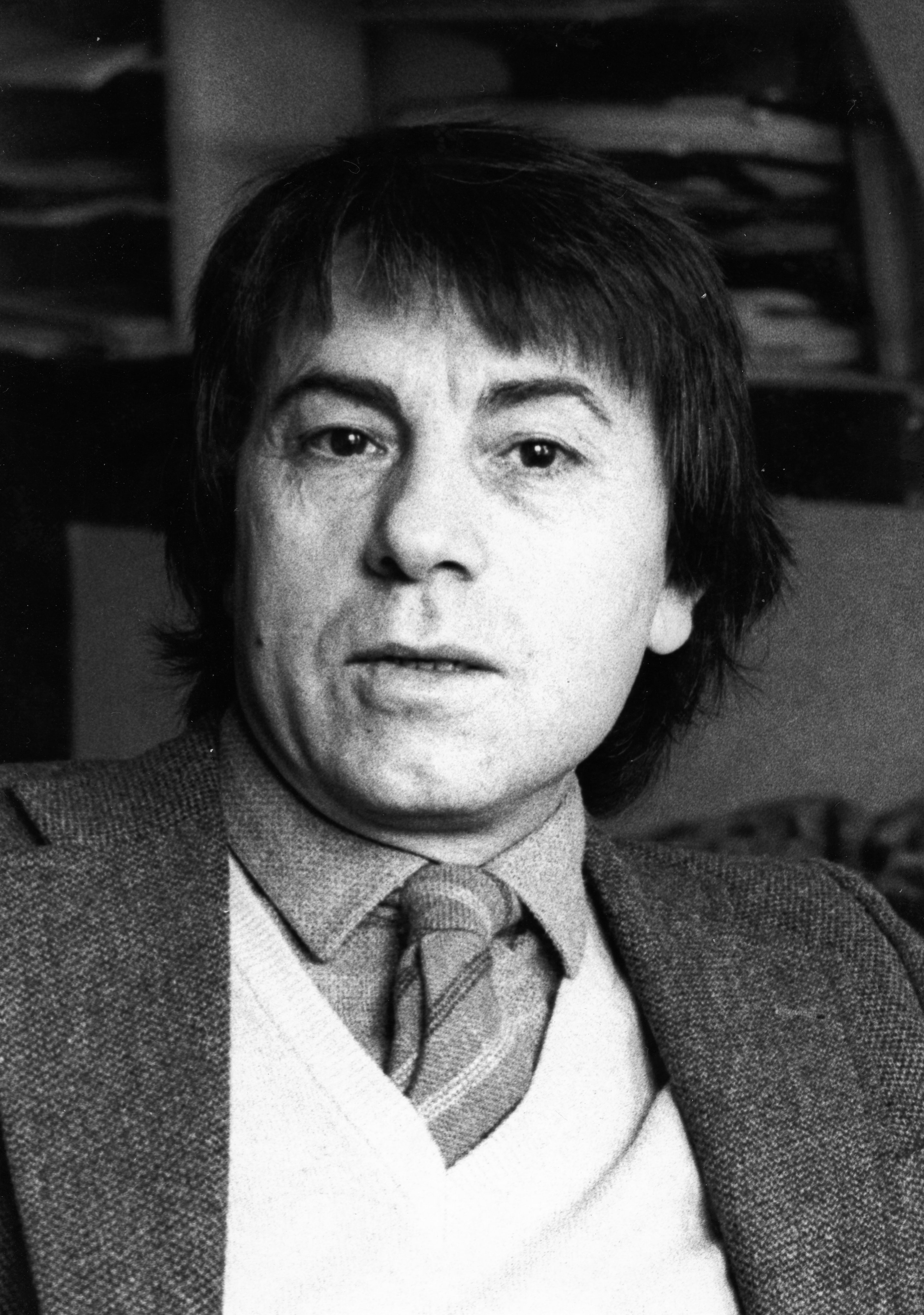 Agustín
Gómez Arcos (or Agustin Gomez-Arcos, a name adopted during his exile in
France) (Enix, Almería, Spain, January 15, 1933 - Paris, March 20, 1998) was a
Spanish writer.
Agustín
Gómez Arcos (or Agustin Gomez-Arcos, a name adopted during his exile in
France) (Enix, Almería, Spain, January 15, 1933 - Paris, March 20, 1998) was a
Spanish writer. Queer Places:
Montmartre Cemetery, 20 Avenue Rachel, 75018 Paris, France
 Agustín
Gómez Arcos (or Agustin Gomez-Arcos, a name adopted during his exile in
France) (Enix, Almería, Spain, January 15, 1933 - Paris, March 20, 1998) was a
Spanish writer.
Agustín
Gómez Arcos (or Agustin Gomez-Arcos, a name adopted during his exile in
France) (Enix, Almería, Spain, January 15, 1933 - Paris, March 20, 1998) was a
Spanish writer.
Gómez Arcos was born into a large Republican family. He was youngest of seven brothers and was only three years old when the civil war broke out. During the war, his family was in trouble, suffering the postwar consequences of the Franco regime. From an early age, Agustín is interested with literature, which he uses as a mean of escape from the sad facts of life. His high school teacher in Almeria, Celia Viñas, encourages and guides his love for literature, making him known the classics and cultivating the interest of Augustine for writing and theater.
In 1953 he finished high school in Almería and moved to Barcelona, where he obtained a scholarship to enroll in law school. He collaborated for the literary magazine "Poesía Española", and published a collection of poems, "Ocasión de paganismo", and got a national prize for short stories for "El último Cristo". At the same time he was active in the theater group at the university. Three years after starting law school he decided to abandon it, and moved to Madrid with a clear purpose: to dedicate to the theater.
Back in Madrid, he worked as a playwright, actor, director and translator. He wrote a total of fifteen works: "Doña Frivolidad", "Elecciones generales", "El tribunal", "Balada matrimonial", "Diálogos de la herejía", "Los gatos" and "Queridos míos, es preciso contaros ciertas cosas". In 1960 he debuted in the theater with "Elecciones generales" that won a prize at the Primer Festival Nacional de Teatro Nuevo.
At the same time he also dedicated to the translation and adaptation of French plays: "La folle de Chaillot", "Intermezzo" by Jean Giraudoux and "La révélation" by René-Jean Clot. In 1962 he was finalist for the Premio Nacional Calderón de la Barca and won the Premio Nacional Lope de Vega for "Diálogos de la herejía", an award that was quickly snatched away after granting; the work was prohibited in all the Spanish stages in a political maneuver of censorship. In 1964 he finally managed to release it in a censored version. In 1965 he debuted with "Los gatos", also in a censorship version.
After his run-ins with the regime, Gómez Arcos began to be aware that he could never represent or publish his plays, and considered the exile as a possible solution. In 1966 he returned to get the Premio Nacional Lope de Vega for "Queridos míos", but this time the censorship specifically prohibited any representation. Gómez Arcos then decided to leave Spain with a first destination: London.
Two years after his arrival in the British capital, he moved to Paris. It was June 1968 and all the artistic atmosphere felt after the "May" was steeped in the events that he had just experienced. Paris was again open to creative innovation and was looking for it in the theater, particularly as a mean of social, political and cultural unrest. Gómez Arcos felt comfortable in this atmosphere of creation. He assisted theatrical representations of Beckett, Ionesco, Anouilh, and in particular, Jean Genet for whom he felt a special admiration.
He started his career in Parisian cafe in the Barrio Latino, true centers of theatrical experimentation. He worked as playwright, director, actor and even bartender. In 1969, the magazine "L’Avant-Scène" issued "Pré-papa". He met another Spanish exile, Miguel Arocena, manager of the Café-Théâtre de l'Odéon, which gave him the opportunity to premiere in February 1969 with "Pré-papa" and "Et si on aboyait". He worked for four years with these small stages and continued writing plays like "Sentencia dictada contra P y J" and "Interview de Mrs. Muerta Smith, por sus fantasmas".

The Carnivorous
Lamb, cover illustration by Mel Odom
In 1974 the editor of Stock, after seeing "Et si on aboyait" in the Café-Théâtre de l'Odéon, offered him to write novels in French. Gómez Arcos accepted the challenge, moved to Athens and then back to Paris months later with "L’agneau carnivore (El cordero carnívoro)", which won the Prix Hermès in 1975. Since then, it was a success after another: in 1976 he published "María Republica" and in 1977 "Ana non (Ana no)", a novel that closed the so-called "postwar trilogy", and won the Prix Thyde Monnier in 1977 and the Prix Roland Dorgelès in 1978. In total, Gómez Arcos published fourteen novels, all written in French. Other than the three already mentioned, there are: Scène de chasse (furtive) (1978) Premio Goncourt finalist; Pré-papa ou Roman de feées (1979); L’enfant miraculée (La enmilagrada) (1981); L’enfant pain (El niño pan) (1983); Un Oiseau brûlé vif (Un pájaro quemado vivo) (1984), Premio Goncourt finalist; Bestiaire (1986); L’homme à genoux (1989); L’Aveuglon (Marruecos) (1990); Mère Justice (1992); La femme d’emprunt (1993), and L’ange de chair (1995).
In 1985 he received the medal of Knight of the Order of French Arts and Letters and in 1995 he obtained another decoration, this time with the rank of Officer.
In 1991 he bounced back to the Spanish scene with "Interview de Mrs. Muerta Smith". Two other of his works, "Los gatos" and "Queridos míos, es preciso contaros ciertas cosas" were represented in Spanish theaters in 1992 and 1994 respectively.
The work of Gómez Arcos is unjustly forgotten, and is greatly unknown to the Spanish reader. However, in recent years Cabaret Voltaire has begun the publication in Castillian of his narrative work written entirely in French.
Agustín Gómez Arcos died on March 20, 1998 in Paris and is buried in the cemetery of Montmartre.
My published books: